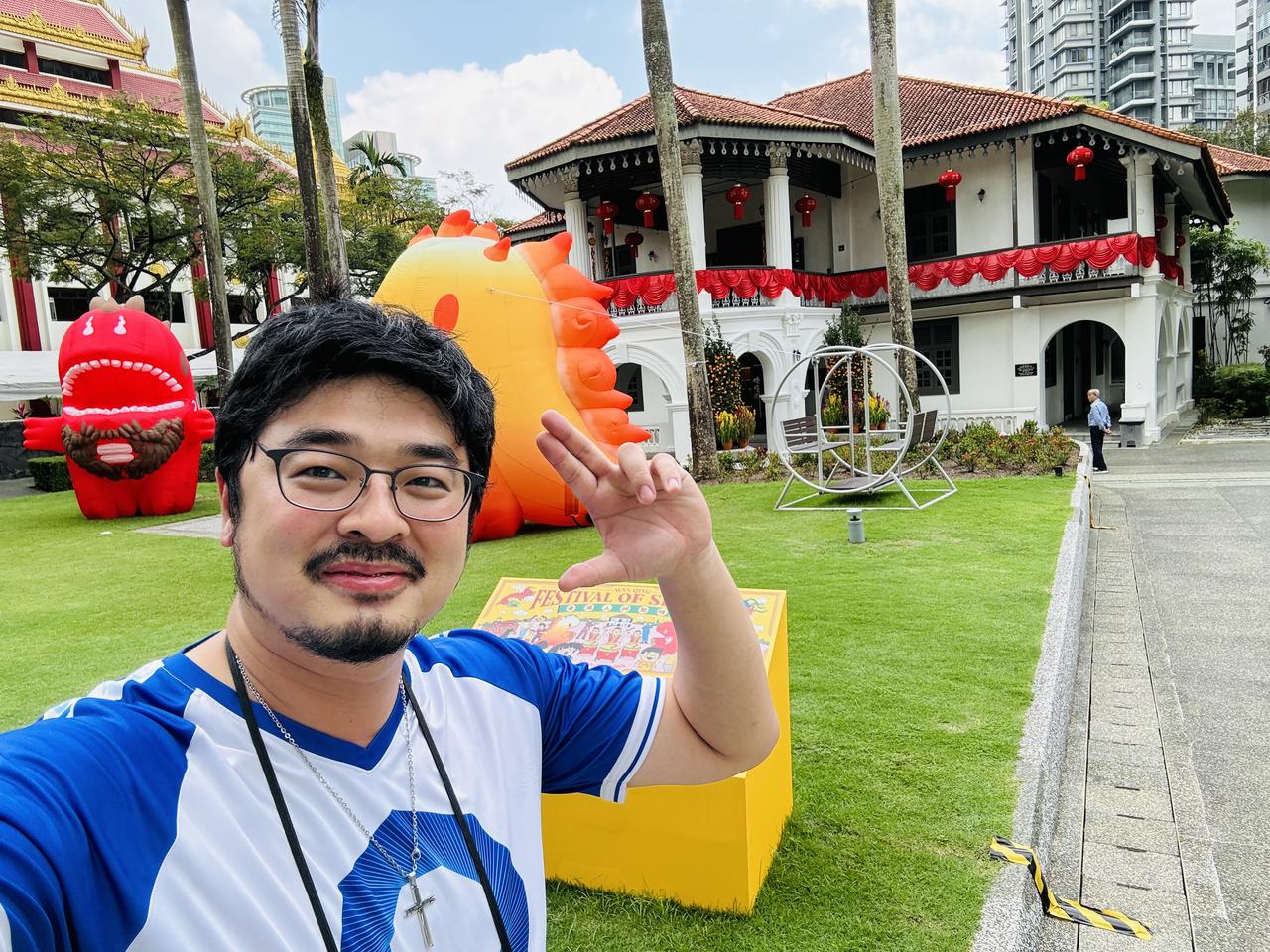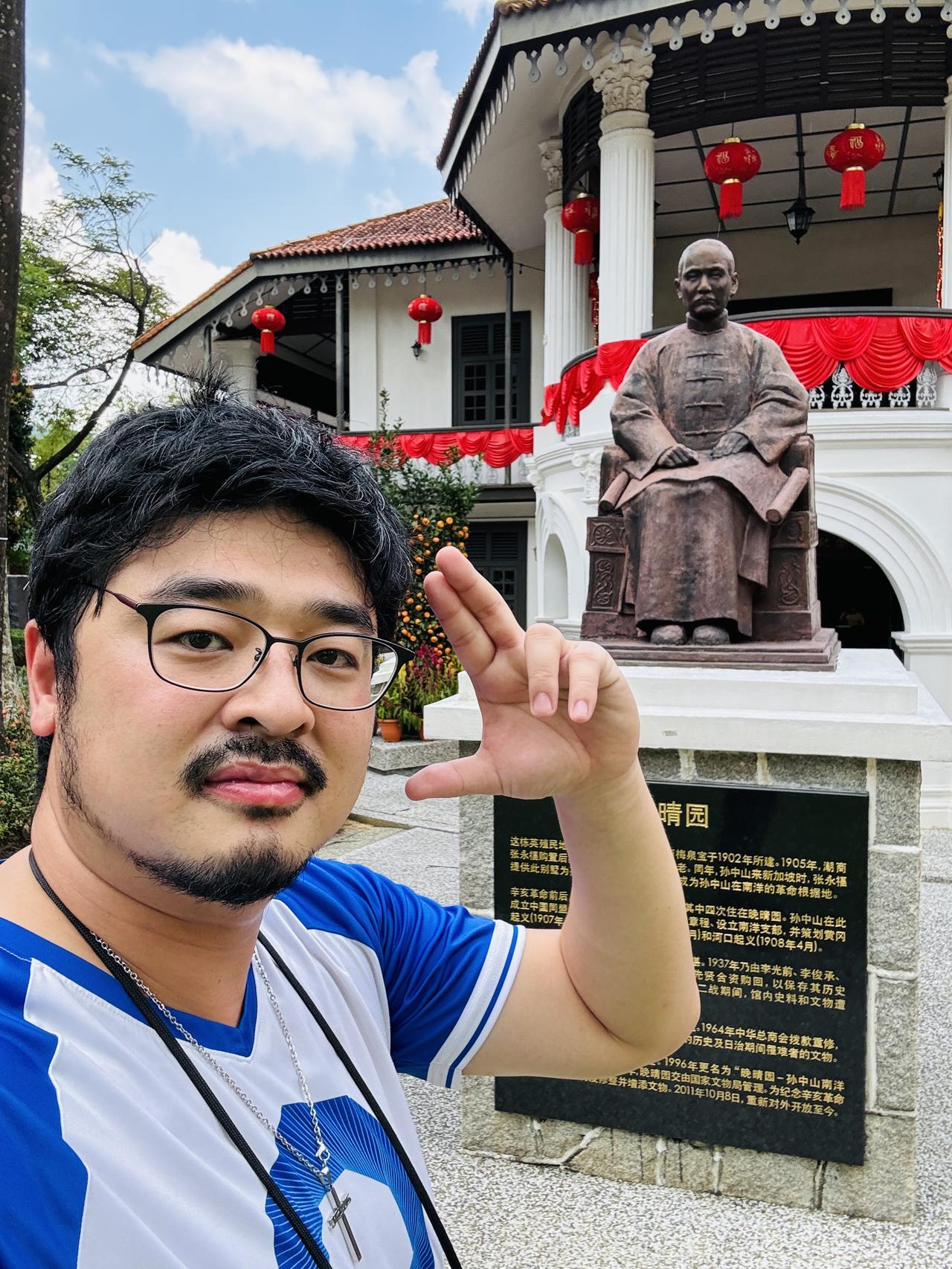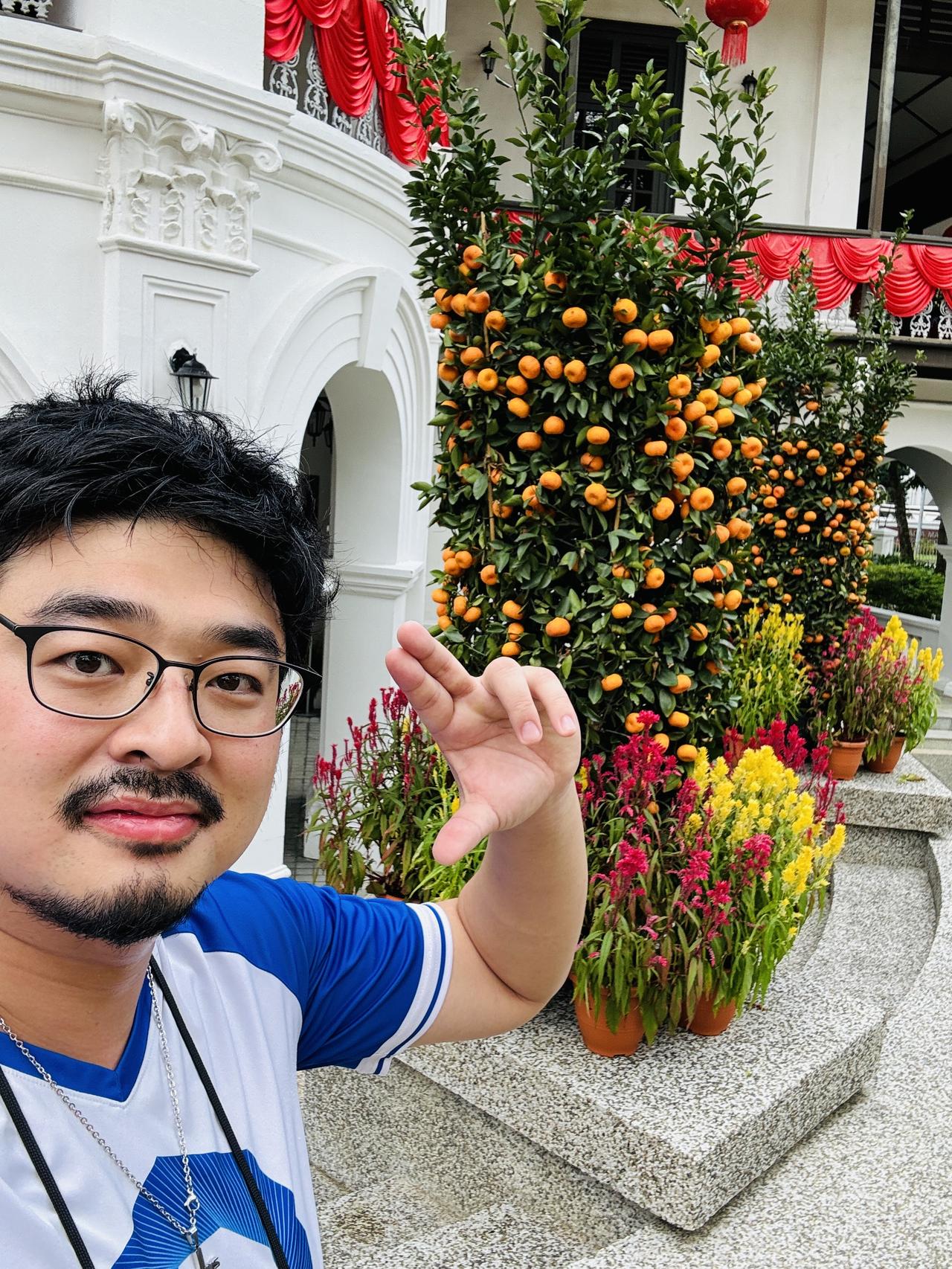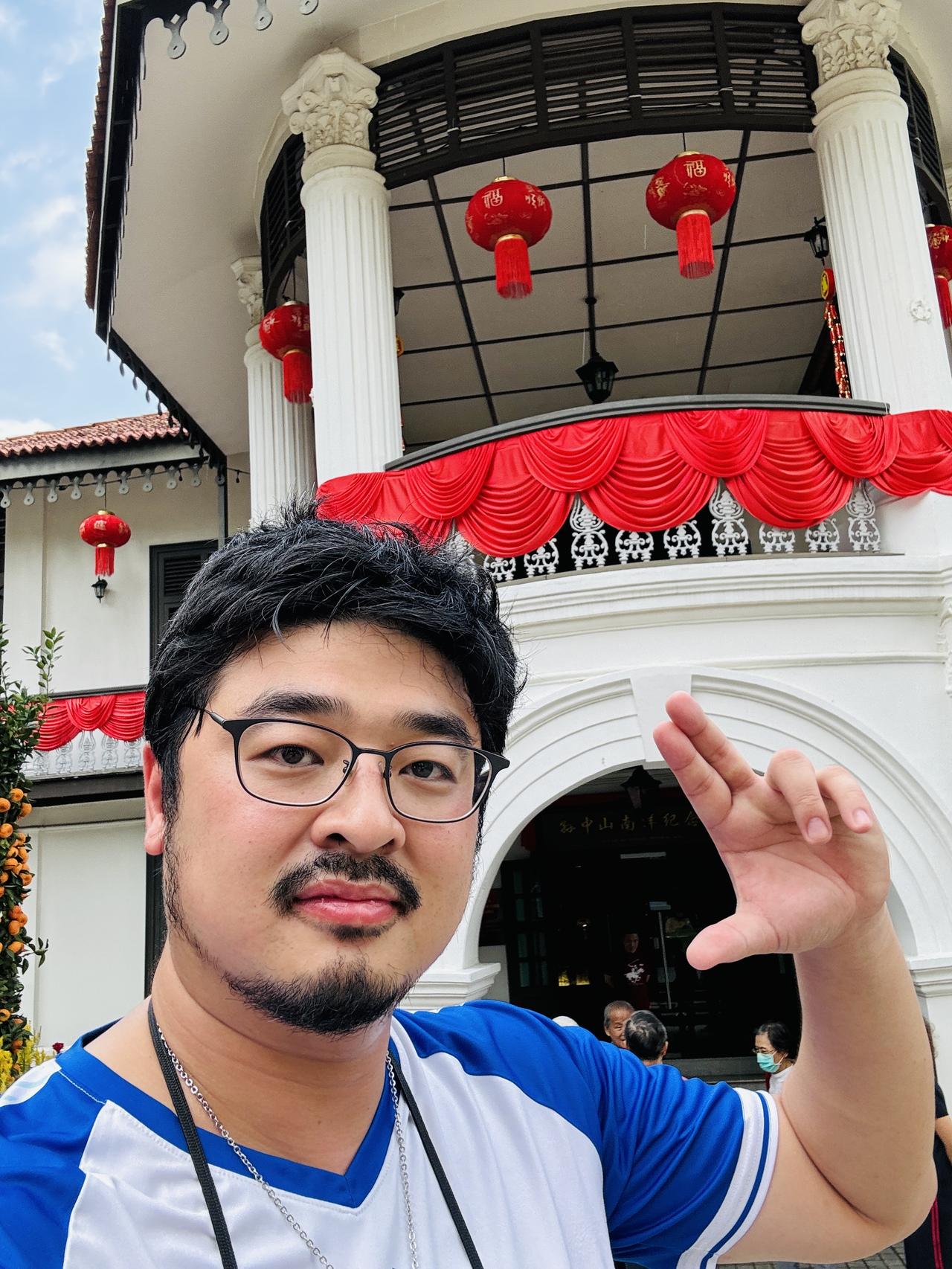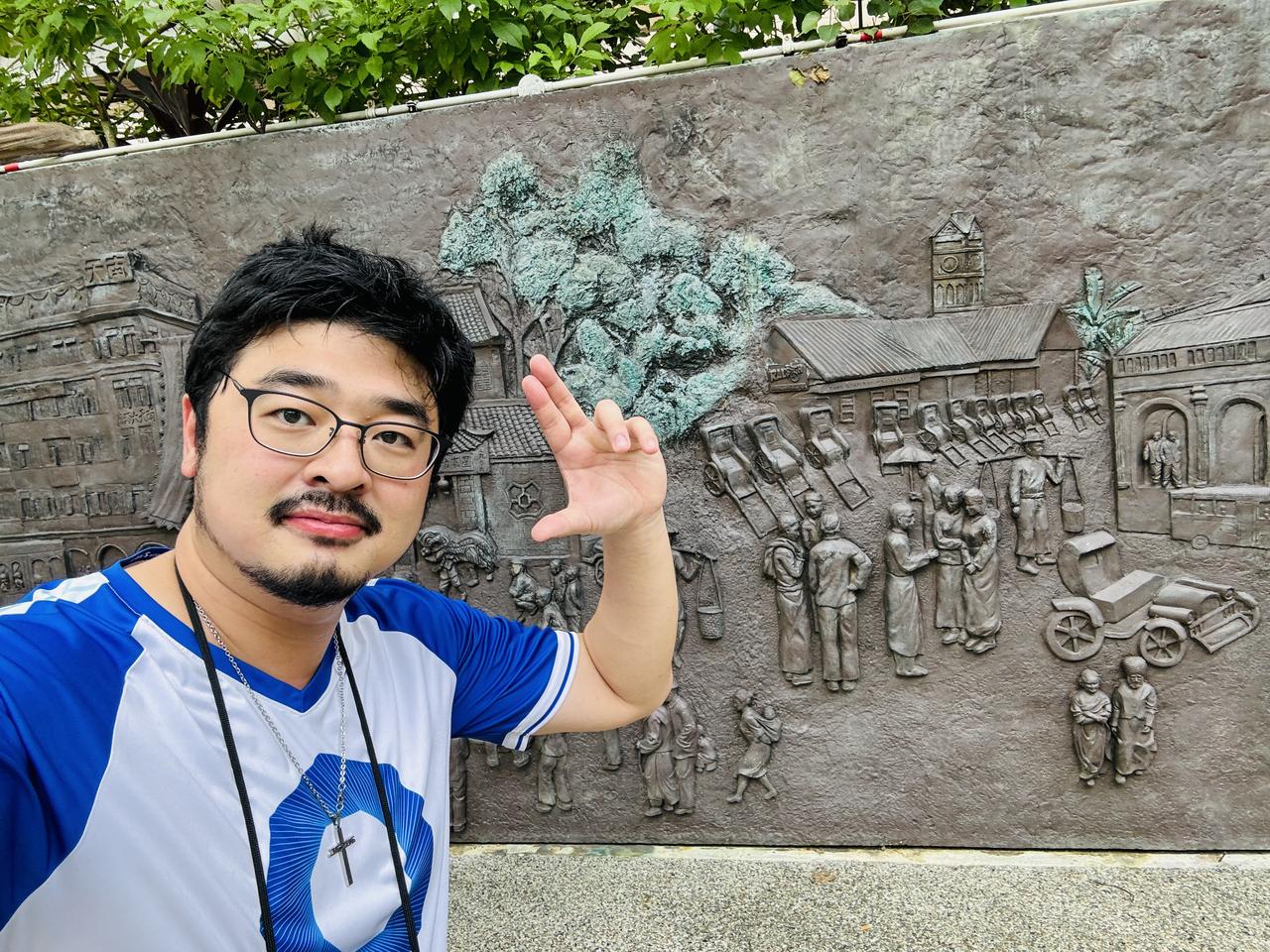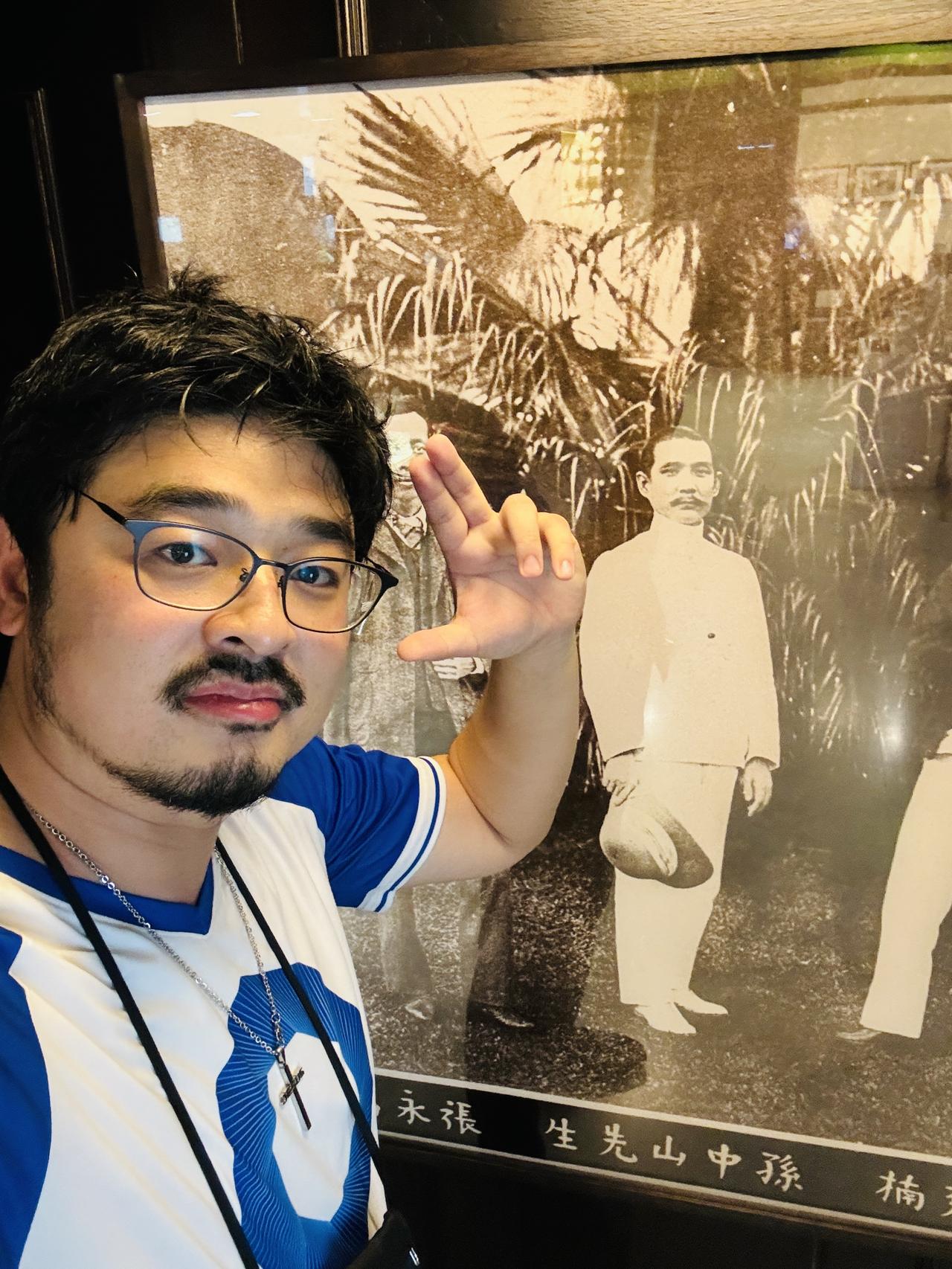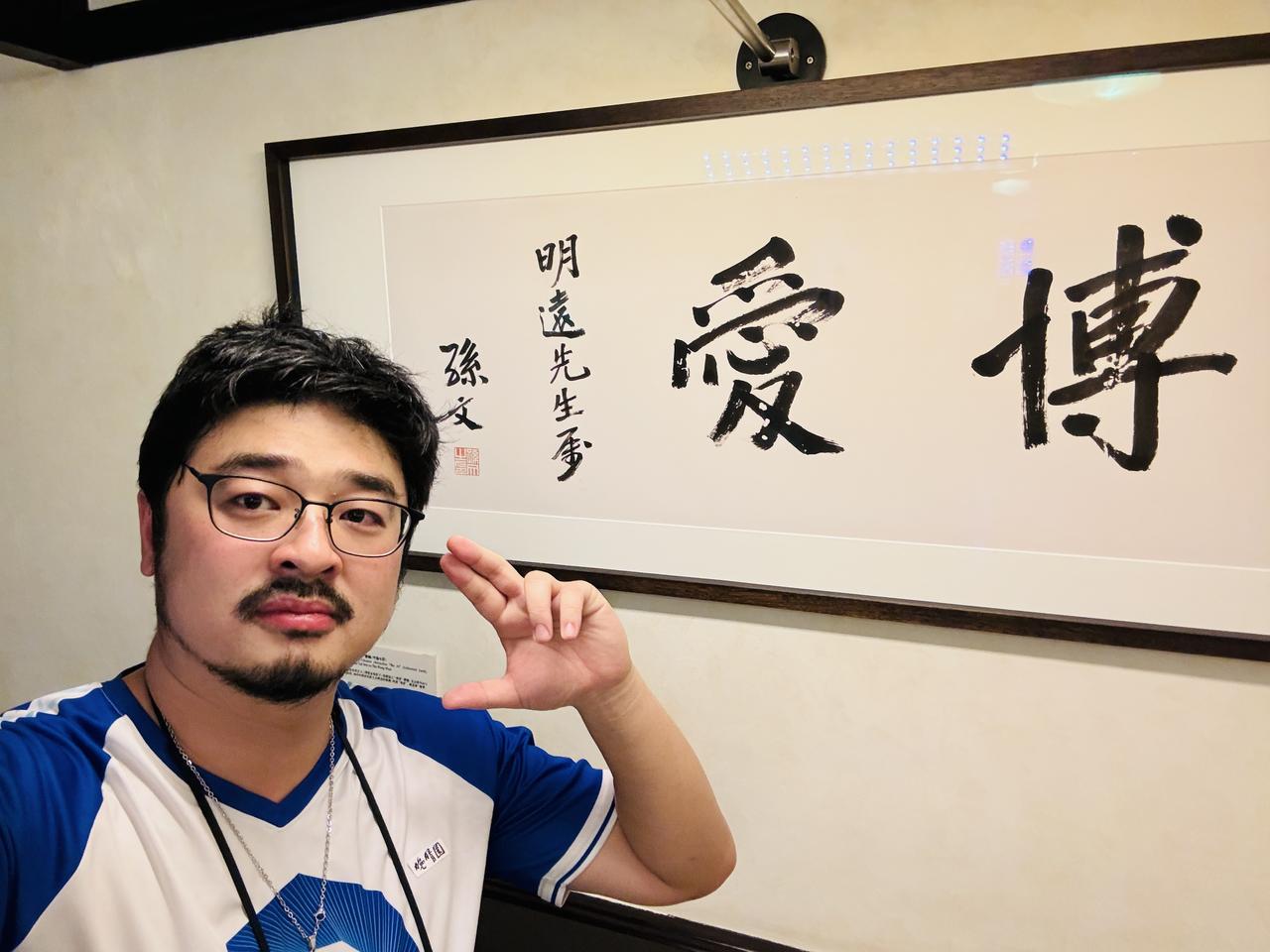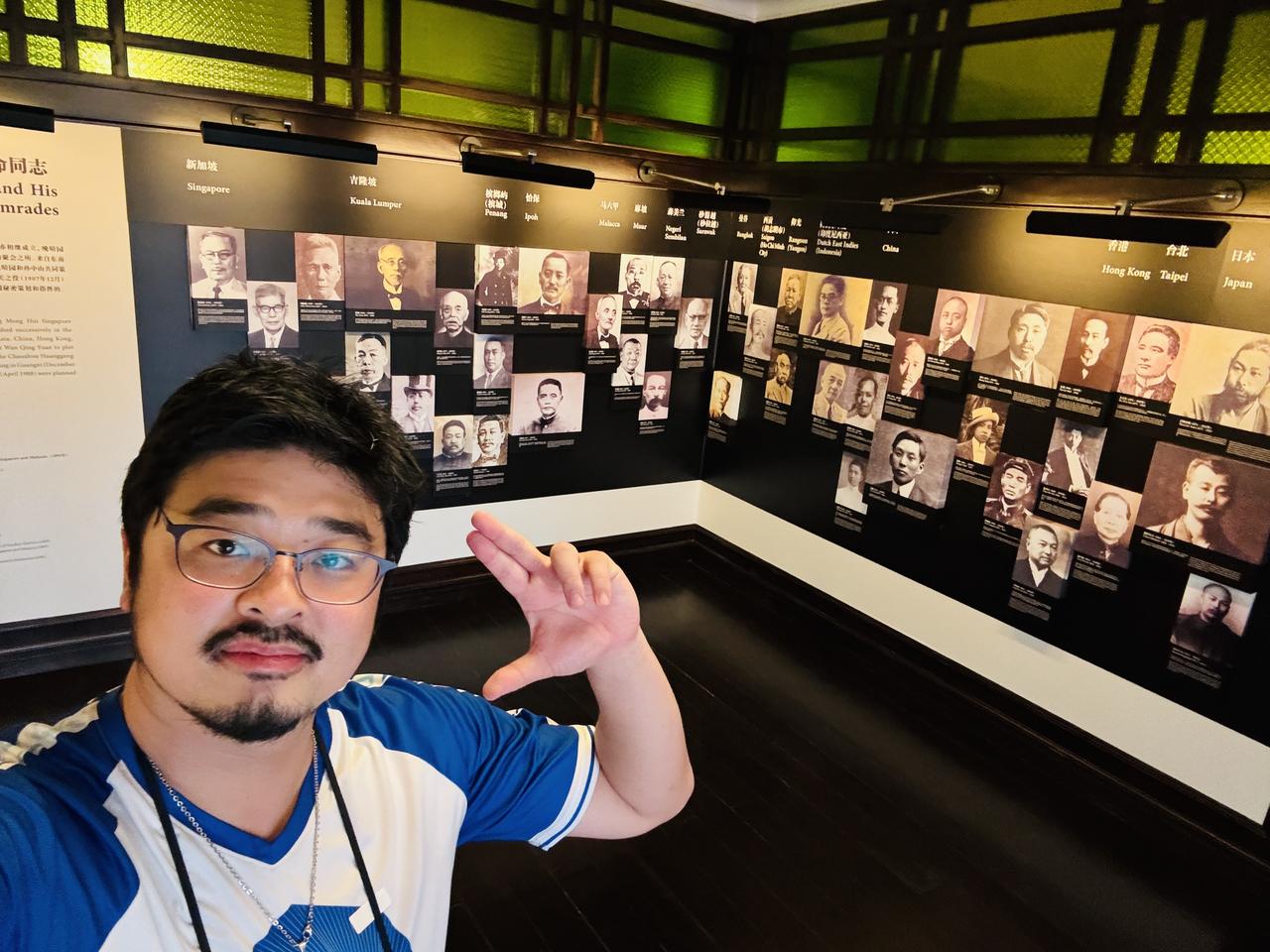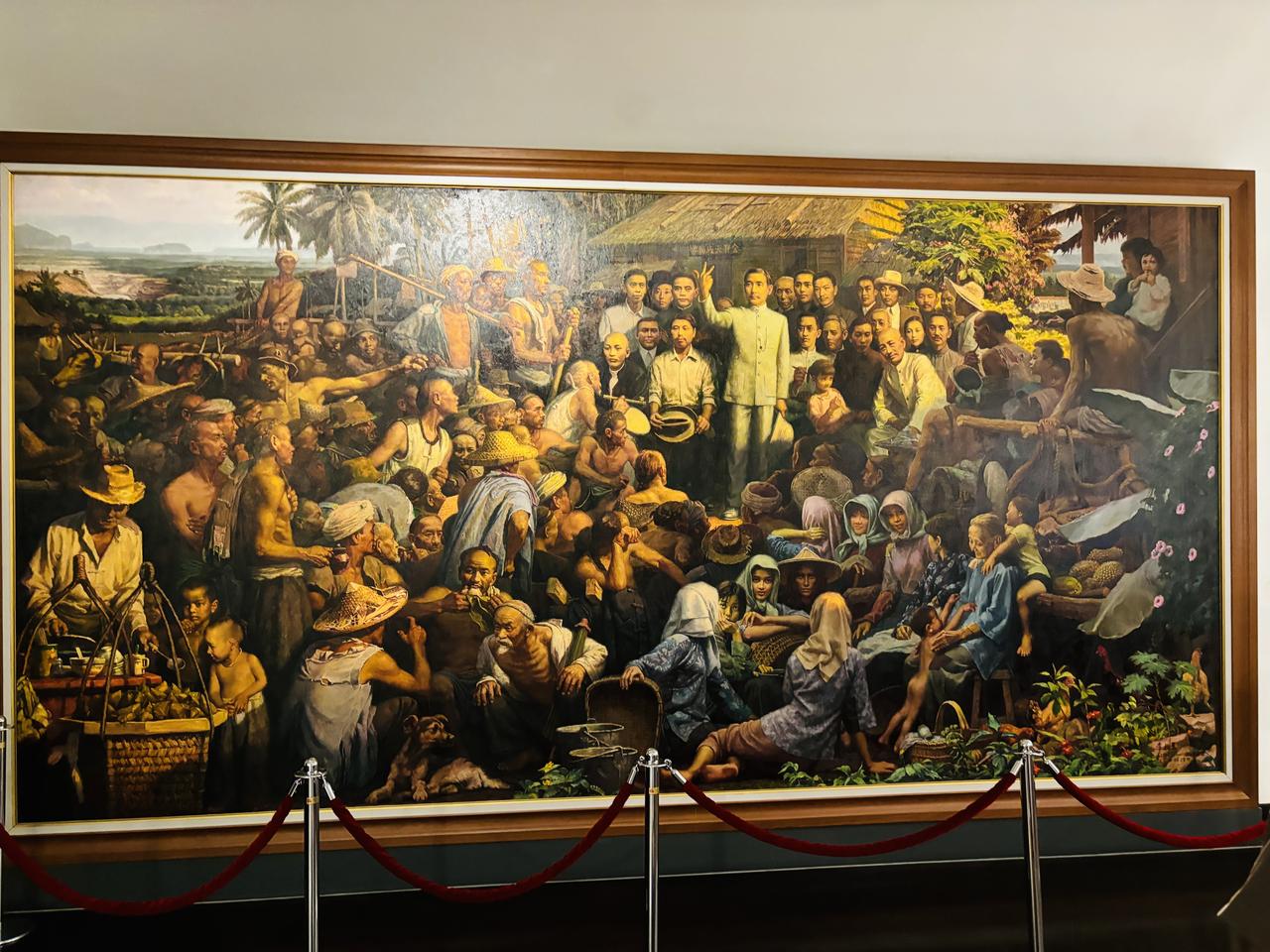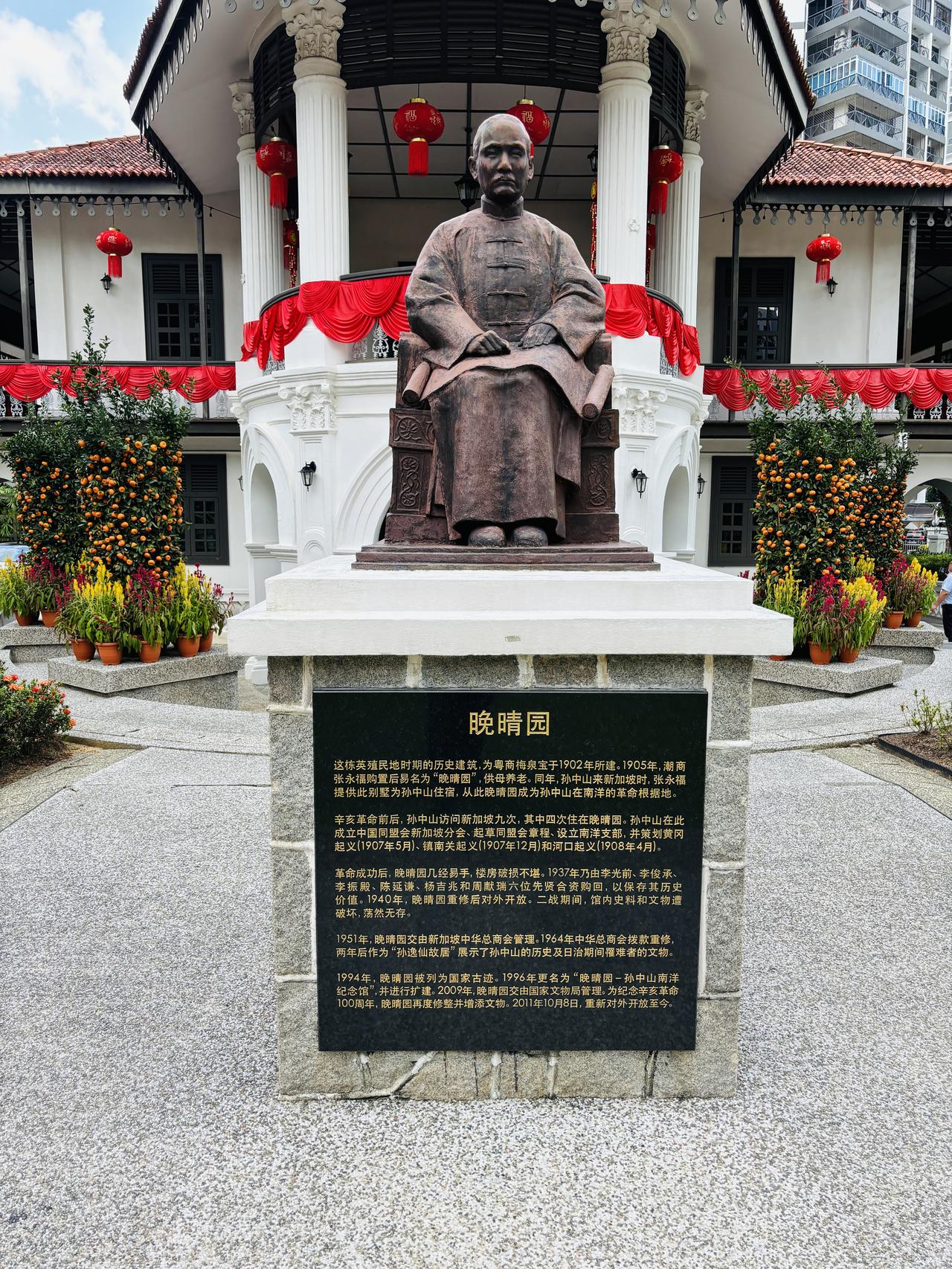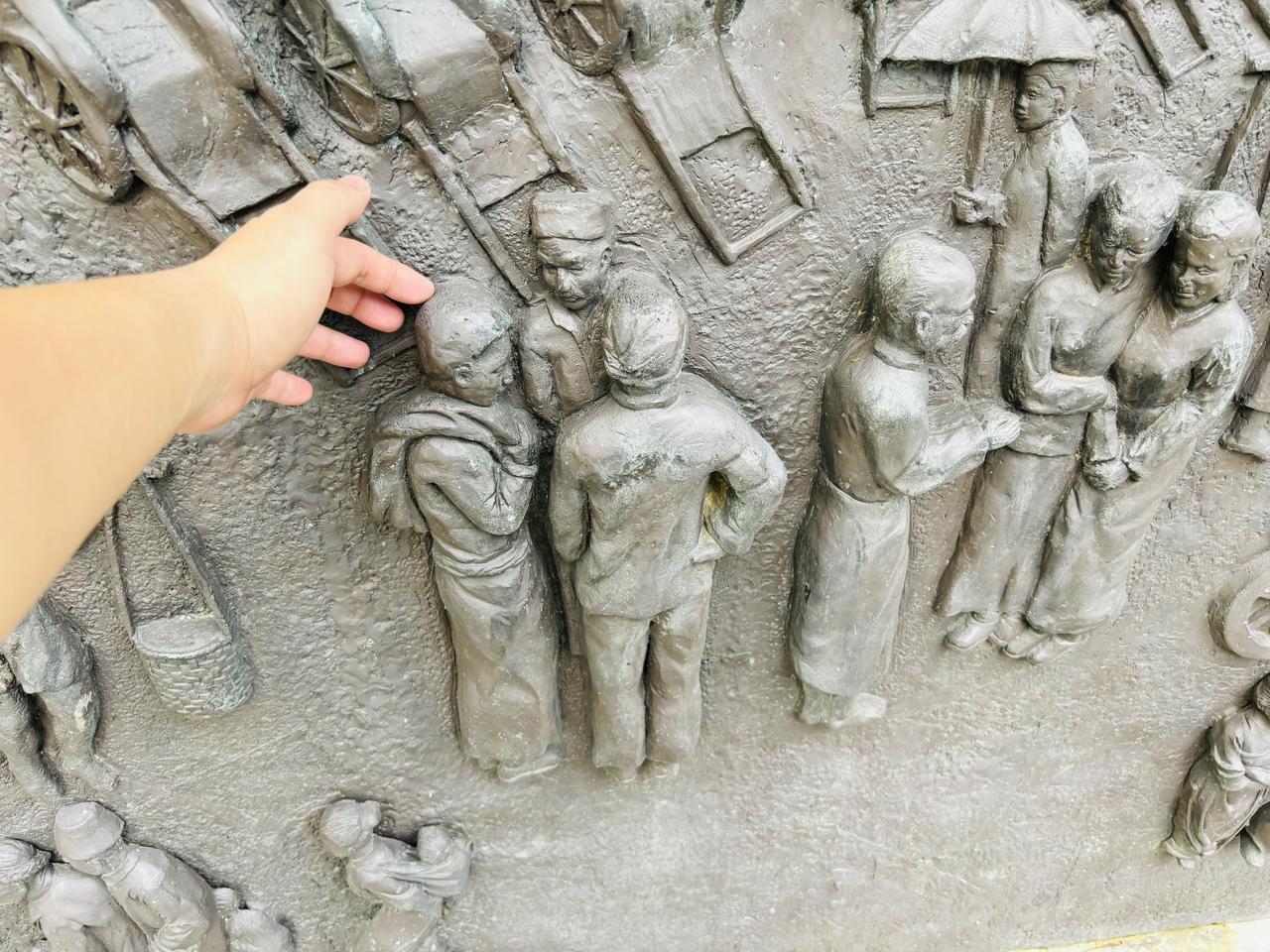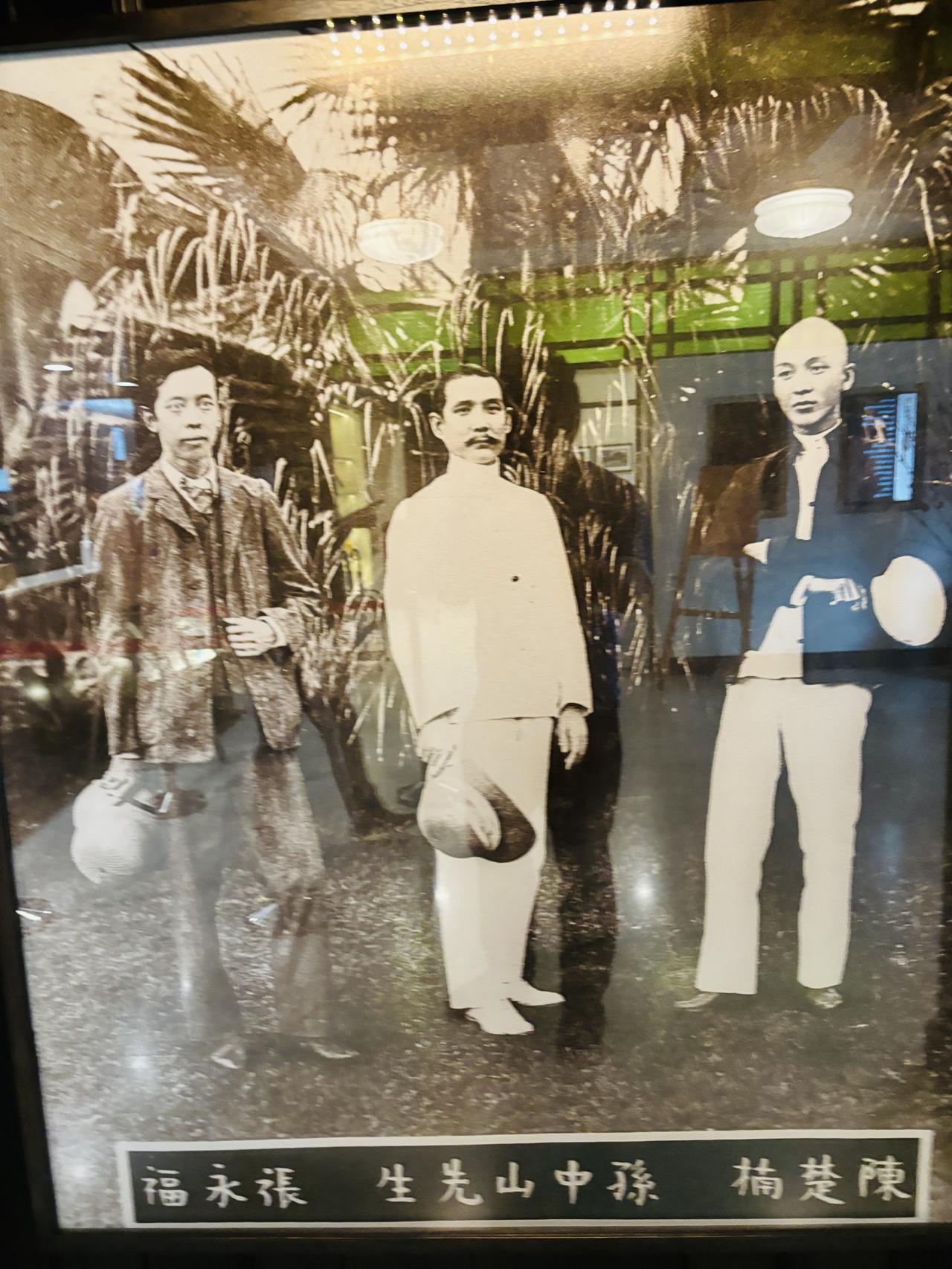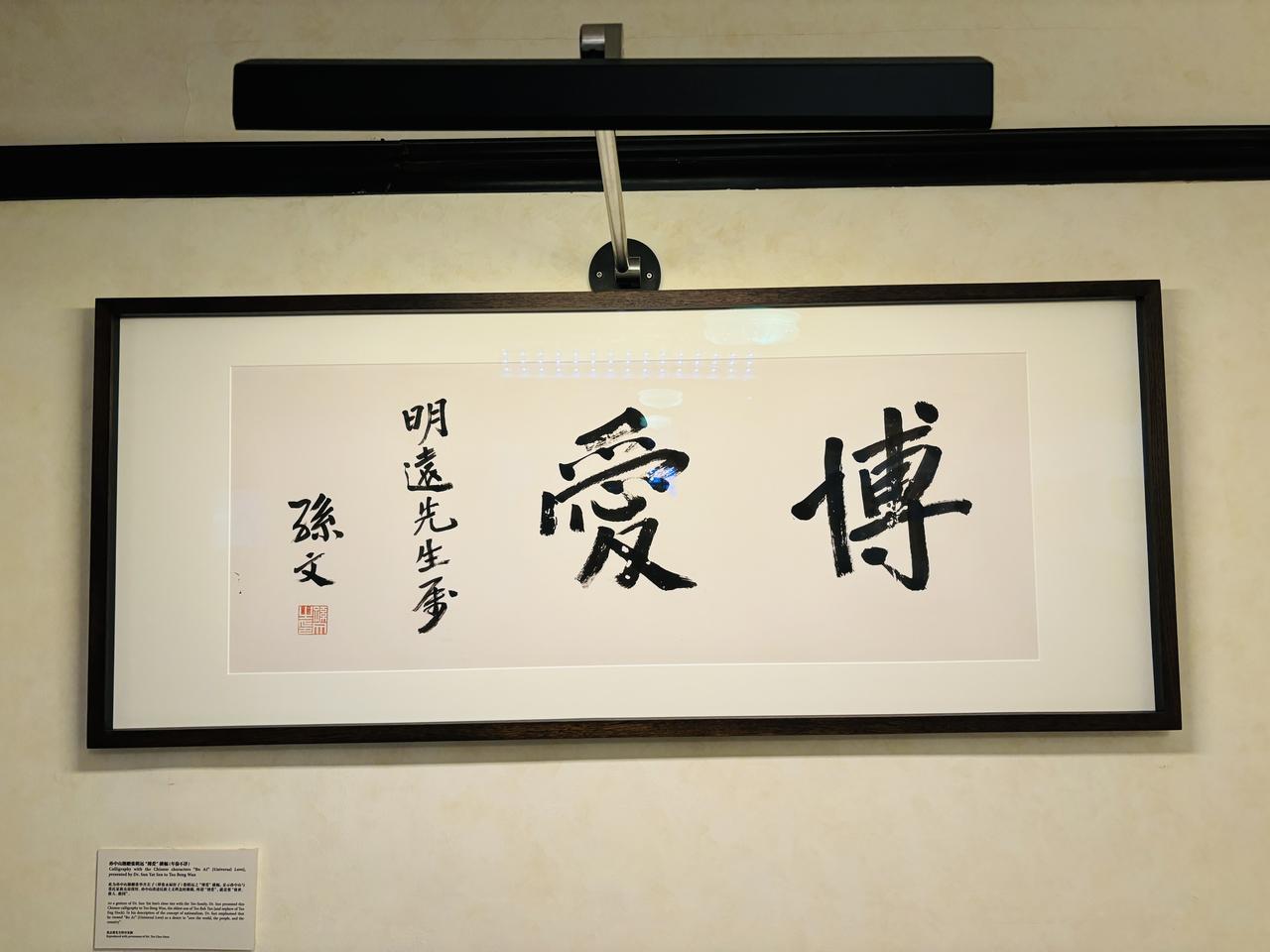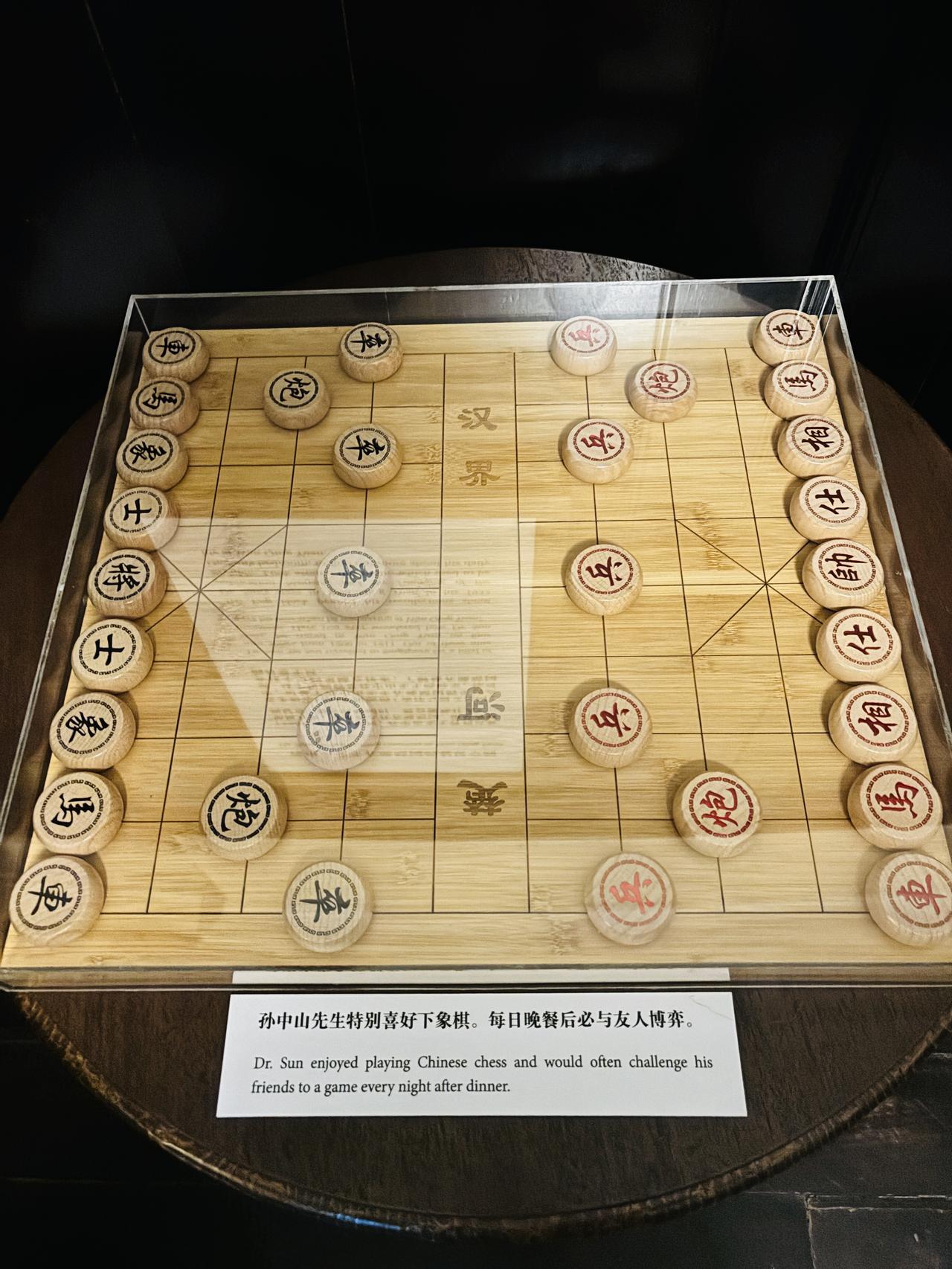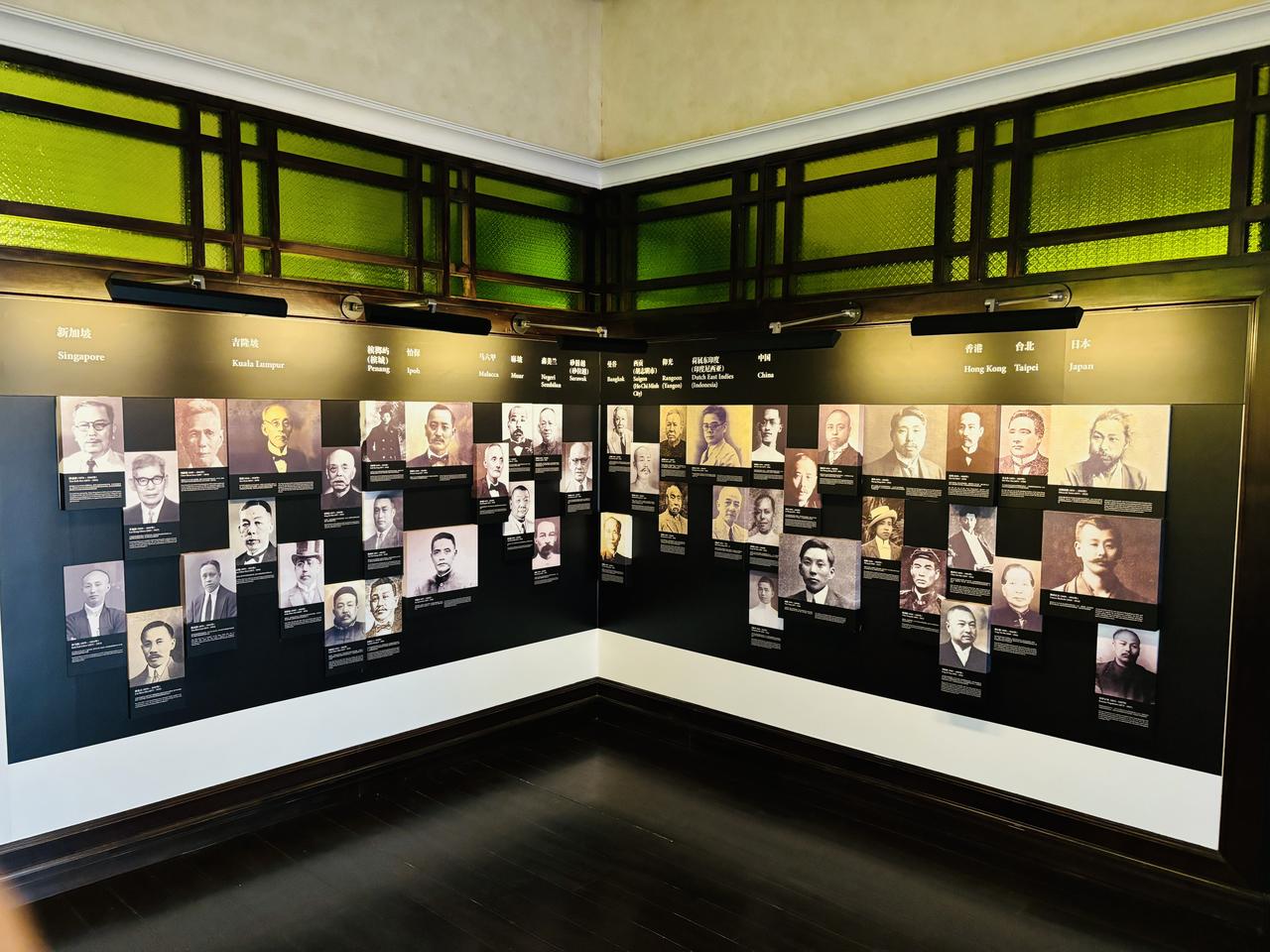United States
16
United States
16
United States
19
United States
16
United States
16
United States
18
United States
14
United States
16
United States
13
Ukraine
11
United States
11
United States
11
United States
13
United States
10
United States
14
United States
11
United States
12
United States
10
United States
9
United States
8
United States
12

This Memory is on the Blockchain!
Ha! I thought this Blox was already owned by Metablox Neighbor Philip, but it turns out that he just owns the Blox next door.
As I am writing my book 10,000 Hours of Play, I have been researching significantly about Sun Yat-Sen for Step 5: Build Your Alliance. When I landed in Singapore, my colleague Benjamin Aw picked up from the airport and said, "Hey, you like Sun Yat-sen, so let's go to his Memorial Museum." I wasn't that excited about it because I typically feel a little bored in memorial museums. But when I got here, I felt extremely touched. This was the original headquarters of Sun Yat-Sen for his planning of a few revolutions! I read about the building in the biographies, and the photos on the wall are recognized by me too. I realized that things are meaningful if you know who the people are the importance of the location (what Metablox aims to do).
This place used to be called Wanqingyuan.
Wanqingyuan, originally established as the headquarters by Teo Eng Hock for Dr. Sun Yat-Sen's revolutionary activities in Singapore, serves as a significant landmark in the history of Chinese revolutionary efforts overseas. Following the decline of Teo Eng Hock's business, the property underwent several transformations, initially serving as the office for the Singapore Chinese Chamber of Commerce before being commemorated as the Sun Yat-Sen Villa. In recognition of its historical importance, it was declared a National Monument in 1994 and subsequently renamed the Sun Yat Sen Nanyang Memorial Hall, serving as a museum dedicated to the life and contributions of Dr. Sun Yat-Sen and his impact on the Chinese community in Southeast Asia.
Here is a manuscript snippet of Yu-kai Chou (my) book 10,000 Hours of Play:
"While our OP Hero, Sun Yat-Sen, might not be a familiar name in Western circles, in the Chinese-speaking world - close to 20% of the world’s population - he is revered as a legendary figure. A visionary par excellence, he masterminded the dismantling of imperial rule in China and laid the groundwork for a modern, democratic nation. His story is not just about political acumen but a testament to the power of strategic Alliances in realizing monumental Missions (Step 1).
Out of all the OP Heroes covered in this book, I would consider Sun Yat-sen’s mission to be the most monumental. Coming from a poor peasant background without status and money, he needed to rally people willing to die for his cause of overthrowing the corrupted Manchus who were ruling China as the Qing Dynasty. In a Seventeen Year Saga, he had the largest Questing Zones out of all OP Heroes: places like China, Japan, England, France, the United States, Hawaii (which wasn’t officially part of the United States yet), Singapore, Malaysia, the Philippines, Indonesia, Thailand, Russia and more. He tirelessly traveled across the world map in order to establish Allies to supply money and weapons to his cause, at a time before airplanes and emails were options.
Needless to say, he didn’t travel luxuriously or leisurely. Many times he was on the run, in exile by his host nation due to pressure from the Chinese Qing Government, avoiding assassination, or being kidnapped. Sun Yat-Sen once wrote to his audience, “I have often for weeks together lived on a little rice and water, and I have journeyed many hundreds of miles on foot.” His British Medical School Dean and Professor James Cantlie also wrote this about him, “For safety Sun frequently lived on board junks on the river as he traveled in the interior of China.”
Due to Sun Yat-sen’s multiple attempts at overthrowing the foreign-invaded Qing Dynasty, his 10K HP Journey is dangerous for himself and for those who Ally with him. At one point, the Chinese Qing Government set a $500,000 USD bounty on his head - in 120-years-ago dollars! Our OP Hero writes himself, that if he was caught, “I well knew the fate that would befall me—first having my ankles crushed in a vice and broken by a hammer, my eyelids cut off, and, finally, be chopped to small fragments, so that none could claim my mortal remains.”
But the greatest devastation is the fact that, after he abandoned his medical clinic as a doctor to become a revolutionist, Sun Yat-Sen failed a total of ten armed revolutions within his Seventeen year Saga. Failing ten businesses in a row would already be soul-crushing for almost anyone, but these failed revolutions aren’t even at comparable levels. Each time he failed, his friends and colleagues died, their families tortured, he lost his patrons substantial amounts of money enough to fund militias, and his life was put to even greater danger.
In fact, not only did his older brother, a self-made business tycoon in Hawaii, end up in bankruptcy after supporting Sun Yat-sen for many years, Sun’s childhood best friend Lu Hao Dong was also captured in the first failed revolution when Lu voluntarily rushed back to his office to destroy the secret member list of their Guild. Lu was tortured to death before ratting out any information about any member. For the following few decades, Sun had to live with the fact that his best friend was tortured to death because of his ideals as he orchestrated the next nine failed revolutions.
After Sun’s former Allies succeeded in the 11th revolution independent of him and overthrew the Qing government (yes, Sun never succeeded in his own revolutions), they respected his character, his struggles, and his writings on democracy enough to give him the Presidency of the new Republic.
Unfortunately, Sun gave up the Presidency only forty-five days later to a respected military minister who was recognized more by western nations in order to avoid a chaotic warlord period in China. That general, Yuan Shikai, ended up becoming a dictator who ruled China with terror in an attempt to establish himself as the new emperor of the Qing Dynasty.
Therefore, another Saga filled with turmoil began when Sun was forty-five as he again traveled to multiple countries, attempting to raise funds and armies to overthrow the new dictator as well as reestablish a democracy within the Warlord Era of post-imperial China that Sun was desperately trying to prevent in the first place. Again, he was attacked, betrayed, and almost assassinated multiple times, before he finally ended his “playthrough” due to gallbladder cancer. As history would have it, his legacy was only carried further by his successors, with the most prominent ones being Mao Zedong and Chiang Kai Shek, supreme leaders of the Chinese Communist Party in China and the Republic of China in Taiwan.
As someone who spent five childhood years in The Republic of China in Taiwan, I was required to sing the national anthem to Sun’s portrait and the flag that he introduced every day. I didn’t know who he was besides he was like a George Washington figure to my homeland. When I actually read up his life story thirty years later in order to write this book, I surprisingly felt disappointed in this revered legend.
I saw failure after failure, rejection after rejection, and dismissal followed by exile from previously supportive nations. Huh? I thought he was supposed to be amazing at persuading people and making allies! How come so many people rejected him and disassociated with him? The only strong Attribute (Step 2) I gave him credit for was Perseverance. After all, who would keep trying after the 7th, 8th, or 9th devastating failure?
It only took the second time for me to read through his biography to realize that the reason why he didn’t appear impressive the first time through was simply because of the hardcore difficulty his Game Mode was in. Being from a poor peasant class meant the Chinese elite class looked down on him. As a Chinese during the period when China was labeled the “Sick Man of East Asia,” the Japanese, British, Americans, and other Western nations dismissed him[^foot8-4]. His role as a revolutionary positioned him as a threat against those who benefited from a stable Qing Dynasty - current government workers, reformists, foreign governments with exploitative treaties, and wealthy Chinese living overseas who had bought prestigious titles from their motherland. Furthermore, advocating democracy over monarchy made him a threat to nations still under monarchic rule, which was still most of the Western world as well as potential Asian allies such as Japan and Thailand. Finally, as a man who expected his Faction to be willing to die for their mission, he alienated those who valued their own lives or their family members, making association with him undesirable.
But despite all that difficulty, he was able to forge allies willing to support him in all those places and demographics. How did he do that? It was because of his wide range of Attributes (Step 2), including the 6 Power Attributes for OP Networking mentioned in this chapter: Integrity, Sincerity, Optimism, Confidence, Initiative, and Persistence. He was also an eloquent speaker (Step 4: Skills) who could adjust his speeches to the audience listening to him. He was able to persuade many Guilds throughout the world - weaponized gangs, governments, Japanese ronin, American adventurers, British intellectuals, Christian pastors, and Qing Dynasty renegades - to become part of his Faction by convincing them that fulfilling his mission would be aligned with their own individual agendas. Many of the Guilds he united had ideological differences and would otherwise never have worked towards the same cause.
Nathaniel Peffer, a professor of history at Columbia University who had spent 25 years in China during Sun’s time, wrote: “I have never known anybody who has been face to face with Dr. Sun who has not been impressed with him… Nothing about him strikes you until he speaks - in a low and uninfected tone with rapid flow of words. His poise, his dignity, his enthusiasm, and, above all, his utter sincerity record themselves on your memory forever.”
Paul M.A. Linebarger, often known by his pen name Cordwainer Smith, was a successful science fiction writer, Duke and John Hopkins Scholar on East Asia, and US Military Colonel that advised the British Forces, the CIA, and John F. Kennedy himself on Psychological Warfare and War Information. Linebarger once wrote that Sun was, “in all probability a more assiduous and widely read student of political science than any other world leader of his day except [Woodrow] Wilson; he studied innumerable treatises on government, and was surprisingly familiar with the general background of Western politics and theory.”
But I find the highest form of flattery towards Sun, not from the Chinese who revere him as a Founding Father, but from his Medical School Professor and Dean, James Cantlie. In his book, Cantlie wrote numerous and enthusiastic compliments about Sun, which made Cantlie look like a fan-boy.
When explaining why he took a trip away from his Hong Kong duties to Macau in order to support Sun execute a high risk surgery on a patient, Cantlie wrote: “Why did I go this journey to Macao to help this man? For the reason that others have fought for and died for him - because I loved and respected him. His is a nature that draws men’s regard towards him and makes them ready to serve him at the operating-table or on the battlefield; an unexplainable influence, a magnetism which prevails and finds its expression in attracting men to his side.”
“Why was he listened to by his astute countrymen, when all others had failed in regenerating China? Why? The transparent honesty of the man; his manifest patriotism; the simplicity of his character; the readiness to endure all for his country’s sake, even torture and death…An unkind thought, far less an unkind word, is foreign to his nature; a keen regard for the feelings of those around him is apparent in his every word and deed; unselfishness to a degree undreamt of amongst modern men”
Keep in mind that *Sir* James Cantlie was an extremely well-respected figure in British society and even medical history. He has published many medical books and was a pioneer of first aid methodologies we use today back in 1875 when it was still unknown to the world. He was also a pioneer in degeneration theory. In today’s field of human anatomy, there is a term called “Cantlie Line” which is an imaginary division of the liver that is useful for performing hepatectomies. He is the Founder of Royal Society of Tropical Medicine and Hygiene, a Founding Member of the London School of Tropical Medicine as well as Journal of Tropical Medicine, a Fellow of the Royal College of Surgeons, and Cofounder of Hong Kong College of Medicine for Chinese, which later grew into the University of Hong Kong. In short, James Cantlie would qualify as an OP Hero himself!
When James Cantlie met Sun Yat-sen in 1887, Sun was attending the Hong Kong College of Medicine as a twenty-year-old. Perhaps sensing some “gamification author” 100 years later would scoff at him for being a fan-boy to his own student, Cantlie wrote:
“My respect and regard for [Sun] may appear to have warped my judgment and directed my pen in too narrow a channel. Let there be no mistake in this matter, however; I have restrained, not exaggerated, my feelings towards him. I have never known anyone like Sun Yat Sen; if I were asked to name the most perfect character I ever knew, I would unhesitatingly say Sun Yat Sen.”
Knowing how much Western nations, especially the British, looked down upon Chinese people at the time (they were the ones that brought the Opium War to China in the first place), when I read this I found myself tearing up. I wondered if I could ever become even close to someone so respected by unlikely audiences like Sun did just based on my character, mission, and endeavors (Attributes, Game, and Quests). It inspired me to become a better person, which is why I share the stories of these OP Heroes to my readers, in hopes that they too can inspire others to become better people and take on their own life missions like passionate Gamers."
We detected that you have a Blox in your crypto wallet! We will import the Blox into your account.
Click on done below to complete the import.
After returning from the WEF now a quick stop in Zürich
Holiday at the park
During my dog walk today …
Getting cold again …
Choose your payment method
Buy with Metablox Credit
Do you want to mint Blox with 1 Metablox Credit?
Which Crypto would you like to use?
How many credits do you want to buy?
$100 USD = 1 Metablox Credit = 1 Blox.
Use Metablox Credit to mint any Blox you want on the map.
 expand_more
expand_more
